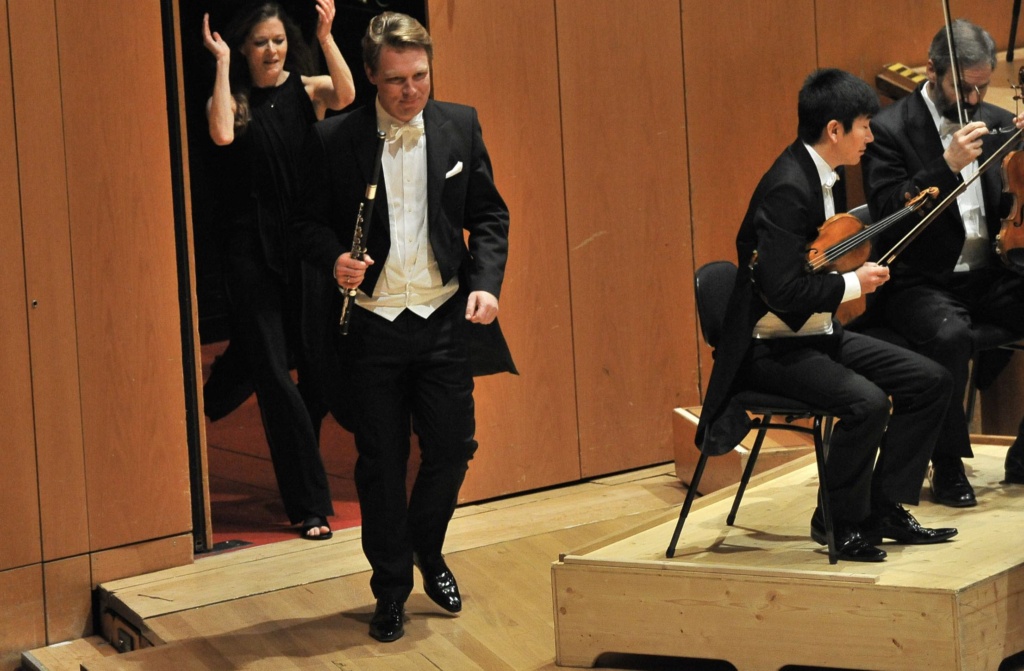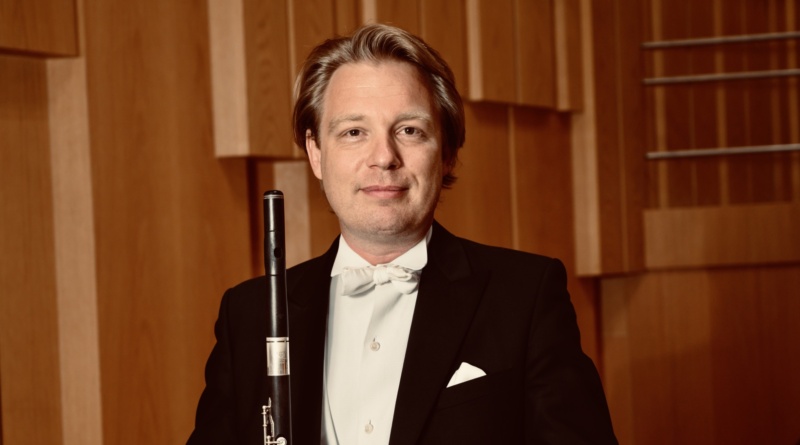Herman van Kogelenberg Artist Interview
Herman van Kogelenberg is principal flutist of the Munich Philharmonic since 2013. Prior he was with the Royal Concertgebouw Orchestra Amsterdam, the Rotterdam Philharmonic and the Royal Liege Philharmonic since 1999. He was teacher at the Rotterdam and The Hague schools of music from 2007 till 2013 and founding member of the Farkas Quintet Amsterdam 1997.
Could you share a bit about your journey with the flute? What sparked your initial interest in playing this instrument, and what led you to pursue it professionally?
My journey with the flute began when I was around 9 1/2 years old, introduced to it by my parents who enrolled me in music classes. Fortunately, a close family friend, a respected flute player and renowned pedagogue, guided my early steps. From the start, I felt an undeniable pull toward music, and my path as a musician felt predestined. There wasn't a specific trigger that led me to pursue flute professionally; it simply felt like the natural course for me.
As the principal flutist of the Münchner Philharmoniker and the Orchestra Mozart, what are some of the distinctive challenges and rewards you encounter when performing with such esteemed orchestras?
Being the principal flutist of a major European orchestra, particularly in Germany, is an experience beyond words. Collaborating with top-tier conductors and soloists in breathtaking concert venues worldwide is both a privilege and a thrill. From the iconic halls of Paris and Vienna to the vibrant stages of Berlin and New York, our performances resonate across diverse cultures. Recently, our tours have taken us to Asia and the USA, where we've had unforgettable experiences, such as our series of concerts at Carnegie Hall with maestro Zubin Mehta last February—a momentous return for him after 14 years.
In your role, what does a typical day entail, and could you walk us through your practice routine and other activities that help maintain your musical prowess?
A typical week in Munich involves two rehearsal days, a morning general rehearsal on the third day, and two or three concerts. With each week featuring a new program, meticulous preparation is paramount. Given the limited rehearsal time, arriving at rehearsals fully prepared allows for focused fine-tuning. As principal players alternate throughout the season, I have the luxury of playing every other week, affording me time for personal practice, chamber music, and engagements with other orchestras. This variety keeps me invigorated and motivated. Last year, I had the extraordinary opportunity to perform as principal flutist with the Berlin Philharmonic—a truly enriching experience.
Your repertoire spans various styles and eras. How do you approach interpreting and performing music from different periods, and do you have preferred composers or pieces?
Our repertoire is extensive, ranging from Bach to contemporary compositions. Delving into performance practices and collaborating with specialized conductors enriches our interpretations. Each week brings a unique sonic landscape, influenced by the era and style of the music. For instance, the vibrato and tonal nuances for Rachmaninov differ markedly from those required for Bach's works. This adaptability ensures a nuanced and authentic musical experience for our audiences.
Collaboration is integral to orchestral playing. How do you collaborate with conductors and fellow musicians to achieve a cohesive interpretation?
Collaborative dynamics have evolved significantly, fostering more interactive and informal exchanges. Communication among musicians and conductors is now more fluid, akin to chamber music. This open dialogue allows for a unified interpretation, enriching the concert experience. Every performance becomes a collective endeavor, with each musician contributing to the cohesive whole.
In addition to your orchestral commitments, you're actively engaged in teaching and chamber music. How do you balance these roles, and what aspects do you find most fulfilling?
Teaching is a passion of mine, allowing me to impart knowledge and guide aspiring flutists. It's immensely gratifying to witness their growth and help them navigate the challenges of our profession. Whether at home or on tour, sharing insights and offering guidance energizes me. Chamber music, particularly with my quintet of over 25 years, is equally fulfilling. Our synergy and shared musical intuition create magical performances with minimal verbal communication—truly special moments.

With your extensive performance history, do any venues hold particular significance for you? What makes them stand out?
Performing on prestigious stages worldwide has been a privilege, each venue leaving a lasting impression. Legendary halls like Carnegie Hall, Suntory Hall, and the Musikverein exude history and resonance, elevating every performance. However, it's not just the venue but also the ambiance that enhances the experience. One memorable occasion was performing and teaching in a remote beach resort in Trancoso, Brazil—an arduous journey rewarded by the breathtaking coastal setting and an enchanting open-air theatre.
Looking ahead, what upcoming projects or performances are you most excited about, and are there any new musical endeavors on the horizon?
As this season draws to a close, I eagerly anticipate upcoming engagements. From concerts in prestigious venues like Musikverein and Elbphilharmonie to teaching at the Adams Flute Festival, each opportunity promises new experiences and growth. The Lucerne Festival and a Japan-China tour are highlights on the horizon, along with serving on the jury of the Maxence Larrieu Flute Competition—a testament to my commitment to nurturing the next generation of musicians.
